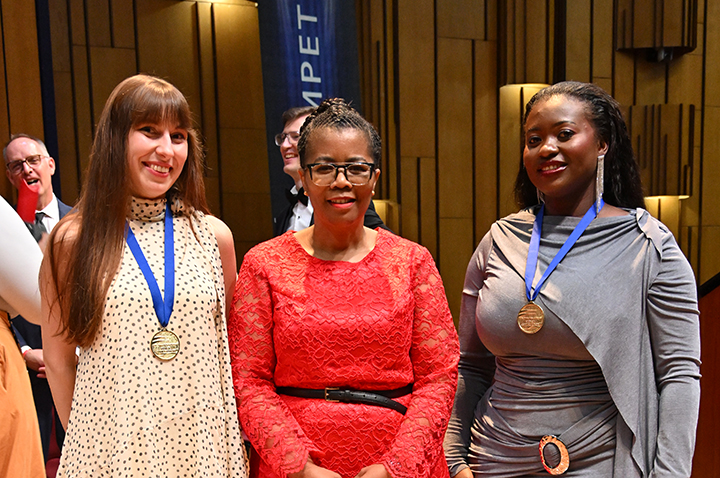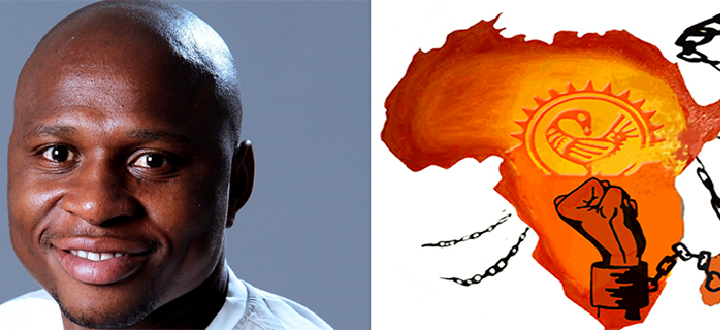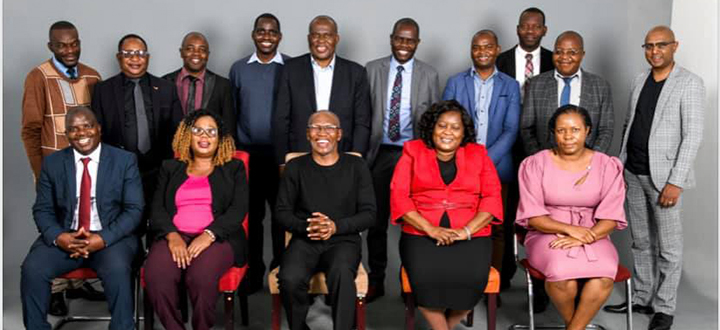
Producing over 40% of teachers in South Africa
On 26 August 2020, Prof Moeketsi Letseka, incumbent of the UNESCO Chair of Open Distance Learning at Unisa, sat down with Tumelo Motaung, who is the secretary on the four-year project, to share his 1976 experiences of working underground in Western Areas Gold Mine in Gauteng as a 19-year-old winch driver from the small village of Ha Ramosele, in the town of Teyateyaneng (TY) in Lesotho.
The conversation, which revolved around Lucas Ledwaba and Leon Sadiki’s book Broke and broken: The shameful legacy of gold mining in South Africa, forms part of a series designed to stimulate public conversation around books, and was hosted as an online live event on Motaung’s Facebook blog, A Read Black Girl.
The conversation dwelt on the meaning of the title of the book, and the human experience the book seeks to cover and portray. The book chronicles stories of young African men recruited mainly from Lesotho and the Eastern Cape when they were 18 or 19 years of age, at the prime of their lives. The authors then note verbatim expressions of pain, despair, anger,and hate, by men who left their homes 30 or 40 years ago as healthy teenagers who had perceived dreams for a better life that working in the mines would offer, but who are now sickly and ravaged by a an incurable lung disease, silico-tuberculosis.
Reading through the book, one can’t help but be sickened by the cold-hearted manner in which, once diagnosed with silicosis, the men were retrenched, paid pittances of between R30 000 and R70 000, and effectively told to "go home and die". This is a sad book of pain and suffering, mostly of the wives who were robbed of breadwinners, and of children whose fathers, who were their pillars of support, were sent home wasted and shells of their previous selves. It is a sad chronicle of the callous exploitation and brazen abandonment of the goldminers.
As a former mine worker, Letseka said that the book left him emotionally drained, emasculated and feeling violated. "I recalled when I arrived at the Native Recruiting Corporation (NRC), which was the predecessor of The Employment Bureau of Africa (TEBA), in Johannesburg, to be processed to my preferred mine. I was forced, with thousands of other recruits to undergo what was then simply referred to as 'the medical'. Thousands of us were herded into a huge warehouse where we were instructed to 'kulula', an Nguni expression to undress. Our genitals were then individually inspected for suspected venereal diseases. We were then made to drink a hideous liquid, which turned out to be an excruciating purgative that had thousands of men scampering for toilets to relief ourselves. Apparently we were being cleansed."
Letseka survived because, unlike his peers, he had the privilege of planning to work in the mines for only one year and to return home and use the proceeds of his mine experience to further his studies. "I cringe at the thought of where I’d be had I stayed on," he says. "I’d most probably also be afflicted by silicosis. I might be dead, or also broke and broken."
After returning to Lesotho in 1977, Letseka obtained a university exemption in the Cambridge Overseas School Certificate (COSC) in 1978, which made him eligible for university admission. In August 1979, he enrolled at the National University of Lesotho (NUL), generously supported by a fully-paid government scholarship, which saw him graduate with a BA Ed degree in the October of 1983, a license for him to teach in public schools.
Letseka, who is in the early stages of writing a memoir chronicling his journey from the mines to holding the endowed position of incumbent of the UNESCO Chair on Open Distance Learning at Unisa, is a positive example of what can happen when one sets one’s mind on a goal, even if its attainment means going through a brutal and exploitative system.
"Mine is a story of entry into mining slave labour and slave wages," he said, "but it’s a positive story, a story of triumph. I count myself blessed that I planned to work in the mines for only one year, after which I’d return to Lesotho to go back to school. Mine is therefore a story of triumph against the odds of becoming a fatal victim of mining exploitation."
Broke and broken: The shameful legacy of gold mining in South Africa is published by Black Bird Books.
* By Tumelo Motaung, Secretary, UNESCO Chair of Open Distance Learning at Unisa
Publish date: 2020/09/21
 Unisa celebrates a project of hope, dignity and student success
Unisa celebrates a project of hope, dignity and student success
 Women vocalists take top honours at Unisa's globally renowned showcase
Women vocalists take top honours at Unisa's globally renowned showcase
 African wealth is dependent on investment in education and development
African wealth is dependent on investment in education and development
 Unisa celebrates matric result success at Correctional Services ceremony
Unisa celebrates matric result success at Correctional Services ceremony
 Unisa ICT Director recognised among acclaimed IT leaders
Unisa ICT Director recognised among acclaimed IT leaders